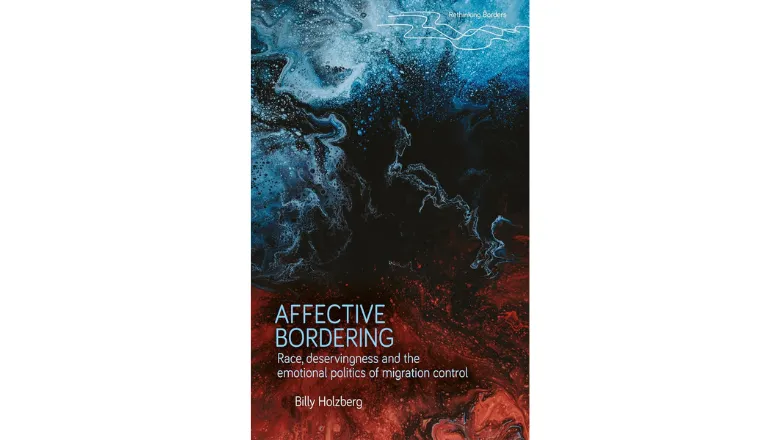“I’m surprised and deeply honoured to receive this prize. It means a lot to have my work — and queer feminist scholarship on affect and emotion more generally — recognised by the BSA as a lens for understanding and contesting racialised border violence, and as a way of imagining alternative grammars of hope and solidarity in an increasingly authoritarian present.”
Dr Billy Holzberg on receiving the prize
28 April 2025
Dr Billy Holzberg wins British Sociological Association's prize for best sole-authored sociology book
The Philip Abrams Memorial Prize is awarded for the best sole-authored book in the subject of sociology.

Dr Billy Holzberg was announced as the winner of the 2025 British Sociological Association’s Philip Abrams Memorial Prize at last week’s (24 April 2025) BSA Annual Conference in Manchester. He receives the award for his book Affective bordering: Race, deservingness and the emotional politics of migration control.
The book conceptualises the affective dimension of bordering practices by uncovering how emotions like anger, fear and hope work to reproduce and contest racialised distinctions between citizen and migrant in political and media discourse. It examines key events in the wake of the 'refugee crisis' in Germany, and traces how the initial hope and empathy of the long summer of migration of 2015 gave way to national anger, fear and shamelessness in the years following.
The book challenges the assumption that positive emotions like compassion necessarily work as a counter to negative emotions like anger or fear and reveals the racial grammars of deservingness that shape border governance today.
The award judges – the BSA President, Professor Rachel Brooks, and trustees, Professor Vanessa May and Dr Steve Raven – said the book “reveals the complex and at times paradoxical ideological and historical terrain … surrounding the issue of migration in Germany during and in the wake of the ‘migrant crisis’.
“Overall, this book is an engaging read that makes use of complex theoretical terrain in a clear manner and that offers an alternative and much needed reading of the so-called migrant crisis of 2015. In doing so, Holzberg offers new conceptual lenses through which we can make sense of migration and popular responses to migration.”

